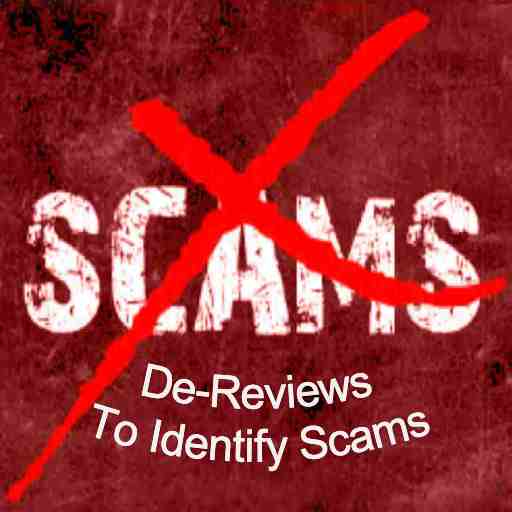Beware of Tuk-Tuk scams near the Grand Palace and Temple of the Emerald Buddha. These scams may involve misleading you by taking you to jewelry shops for commissions by falsely claiming that the Grand Palace is closed for the day, among other tactics.
This article sheds lights on Tuk-Tuk scams as well as offering tips to protect yourself around the Grand Palace and Temple of the Emerald Buddha.
Introduction
Thailand's Grand Palace, along with the revered Wat Phra Kaew (Temple of the Emerald Buddha), is a must-visit destination for travelers. Unfortunately, the popularity of these attractions has attracted scammers aiming to exploit unsuspecting tourists.
Falling for the TukTuk Scam near the Grand Palace
During our visit to the Grand Palace, my wife and I encountered a Tuk-Tuk scam that left us disappointed and frustrated. We had chosen to stay near Ram Buttri, a convenient location for accessing the Grand Palace and the vibrant Khaosan Road nightlife.
As we set out early one morning to explore the Grand Palace, we were approached by a man who struck up a friendly conversation. With impeccable English and a warm demeanor, he appeared as a local resident.
Identifying himself as an employee of a nearby travel agency, he shared surprising news – the Grand Palace was temporarily closed until 2 pm due to a special event when we informed him of our plan to visit the Grand Palace. He suggested that waiting would be dull and proposed exploring other nearby attractions instead.
The Tuk Tuk Scam in Thailand Revealed
Presenting a map, he pointed out several places of interest. Inquiring about walking, he insisted that it was not feasible and recommended hiring a Tuk Tuk. Without delay, he hailed a passing Tuk Tuk and instructed the driver to take us around.
Despite our initial reluctance, he assured us of a special offer due to the day's supposed significance – a mere 40 Baht for a trip covering five locations, with a return to the starting point. Tempted by the seemingly nominal fee, we succumbed and boarded the waiting Tuk Tuk.
Initially, he led us to a Buddha temple (we don't know the name of the temple). Soon after, he diverted us to a jewelry shop, citing the day as an occasion for extraordinary discounts on rubies.
He tantalizingly mentioned the possibility of acquiring a free gas coupon for his TukTuk without any purchase obligation. Although we were uninterested, his persistence prevailed. He asserted that a visit to the jewelry shop, even without a purchase, would secure the coveted gas coupon for him.
Despite our reservations, we found ourselves reluctantly examining jewelry we had no intention of buying. The shopkeepers' insistent sales tactics further soured the experience.
Subsequently, we reentered the Tuk Tuk and conveyed our desire for the next destination. Following our instruction, he chauffeured us to yet another Buddha temple, the name of which remained elusive.
After a brief exploration inside the temple, lasting about 20 minutes, we emerged to find an unexpected absence – our Tuk Tuk and its driver were nowhere in sight. Alarmed and puzzled, we scoured the vicinity in search of him.
Despite our efforts, there was no trace of the Tuk Tuk or the driver. Hoping for a temporary absence, we patiently waited for an hour, clinging to the possibility that he might return. But he vanished without a trace, leaving us baffled and stranded. For an agonizing hour, we waited in vain for his return.
The Aftermath and Lessons Learned
As the hours slipped away, we realized the Grand Palace and Temple of the Emerald Buddha were not closed as we were told. It became evident that the TukTuk driver had abandoned us due to our failure to purchase anything at the jewelry shop.
This entire scam seemed designed to funnel tourists into purchasing items from that particular shop, likely for a commission.
When it became apparent that our wait was in vain, we faced a predicament. We inquired with other TukTuk drivers about the fare to return to Rambuttri, our hotel's location.
To our dismay, the quotes ranged from 200 to 300 Baht. It was evident that we had fallen into a trap. Without alternative means of transportation in an unfamiliar area, we reluctantly paid the requested 200 Baht, feeling the sting of the situation.
We missed the opportunity to visit the Grand Palace that day, a disappointment compounded by the fact that we had a flight to Phuket later that evening.
Our determination to explore the Grand Palace persisted, and we revisited after returning from Phuket. However, our experience did not end there. On our second visit, we encountered another individual falsely claiming the Grand Palace was once again closed for the day.
Armed with the knowledge of the scams, we promptly dismissed his claim, stating that we had no intention of visiting the Grand Palace that day. As we distanced ourselves from him, we observed the same person approaching other unsuspecting tourists.
He spun the same tale of closure, showcasing a map to divert them to alternate attractions. A curious twist occurred when our paths crossed again. Upon spotting us, he swiftly averted his gaze and hurried away. While unsure if he recognized us, his actions strongly suggested he did.
I was inclined to confront him and demand an explanation for his audacious scam, but my wife intervened, cautioning that such a confrontation could ruin our day. She highlighted the proximity of a police station, where these scams seemed to operate routinely.
Considering the potential consequences, we opted to refrain from engaging in a confrontation and wisely chose not to escalate the situation.
This encounter served as a reminder of the pervasive nature of these scams and the need for vigilance when navigating the Grand Palace vicinity.
Remaining Vigilant Against Other Scams and Theft Around Grand Palace in Thailand
The Tuk Tuk scam is not the only deception targeting tourists in the Grand Palace vicinity.
In addition to the scams we encountered, a range of other deceits thrives around the Grand Palace and Temple of the Emerald Buddha.
These include attempts to coerce tourists into purchasing overpriced attire, shoes, and clothing under the guise of not meeting the dress code to enter the Grand Palace, even if one is perfectly attired.
Likewise, some may falsely insist that hiring a guide is mandatory for entry into the Grand Palace, creating unnecessary expenses.
Moreover, reports have surfaced of few theft incidents in the vicinity of the Grand Palace. Opportunistic thieves might seize belongings and vanish swiftly.
Therefore, exercising caution during your visit or stay near the Grand Palace and Khaosan Road is imperative to safeguard your belongings and overall experience.
Final Thoughts
Amidst the prevalence of scams, it's important to recognize that the Grand Palace and Khaosan Road area hold immense allure and cultural significance.
Despite the presence of scams, they remain among Thailand's most captivating destinations, drawing both genuine travelers and those with ulterior motives.
Khaosan Road is a vibrant hub that remains bustling late into the night, providing a unique glimpse into local culture.
Furthermore, the Temple of the Emerald Buddha within the Grand Palace complex stands as a testament to exceptional architecture and spiritual importance, an experience not to be missed.
Frequently Asked Questions (FAQs)
Is the Grand Palace ever closed during the day?
No, the Grand Palace typically operates throughout the day. Be cautious of unsolicited claims of closure, especially from street vendors.
What is the dress code for visiting the Grand Palace?
The Grand Palace enforces a strict dress code. Men must wear long pants, and women should cover their legs up to just above the knees. Shoulder should be covered. Sleeveless or revealing attire is prohibited.
- Long pants for men.
- Women must cover legs to just above the knees.
- No tight-fitting dress or pants.
- No revealing clothes.
- No sleeveless shirt, shoulder must be covered. T-shirt or Shirt or any other top covering shoulder will be better.
- No religious theme or symbol of death on clothing
- Flip-Flops are allowed for tourist, although you may meet some scammer shoppers yelling you that you can’t wear Flip-Flops, just ignore them.
Do TukTuk tours enhance the Grand Palace experience?
TukTuk tours are optional for exploring the Grand Palace area. Other transportation methods include walking, public transport, and taxis.
Are there specific dress code requirements for the Temple of the Emerald Buddha (Wat Phra Kaew)?
Similar to the Grand Palace, visitors to the Temple of the Emerald Buddha must also adhere to the same dress code, since the Temple of the Emerald Buddha is within the Grand Palace vicinity which you can access with the same ticket.
Can I trust strangers offering assistance near the Grand Palace?
Be cautious of unsolicited offers. Seek assistance from official tourist information centers.
Are there reputable jewelry shops near the Grand Palace?
While legitimate shops exist, beware of aggressive vendors. Don't feel obligated to browse or purchase under pressure.
Can I rely on Tuk-Tuk drivers for transportation?
Although the majority of Tuk-Tuk drivers can be relied upon, it's important to acknowledge the presence of those who engage in scams.
To ensure a secure journey, opt for Tuk Tuk rides solely to your intended destination. It's advisable to exercise caution and not blindly heed the suggestions of Tuk Tuk drivers.
Additionally, when negotiating fares, don't hesitate to counter their initial offers, as Tuk Tuk drivers often quote higher prices to tourists.
What should I do if I encounter a similar scam?
Politely decline offers and move on. Avoid confrontations. Report suspicious activities to local authorities.
Are there alternative attractions near the Grand Palace?
Indeed, several attractions await exploration, including museums, temples like Reclining Buddha, and local markets. Research these options prior to your visit.
Is the area around the Grand Palace safe from theft?
Theft can be a concern in the Grand Palace area. Exercise caution and keep belongings secure.
Conclusion
While the Grand Palace and Temple of the Emerald Buddha continue to hold their allure, they've also become breeding grounds for scams targeting tourists.
Armed with knowledge and our provided tips, you can navigate these remarkable landmarks without falling victim to scams.
Remember, despite the existence of scams, the grandeur of these attractions remains undeniable, ensuring an enriching experience in the heart of Thailand.
Please help us by reporting various kinds of tourist scams by emailing us at ad***@********ws.com or using the comment section below.


Leave a Reply